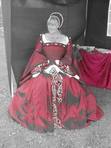Judith Arnopp's Blog, page 33
April 15, 2018
A visit to the moated manor house of Lower Brockhampton.
Judith Arnopp
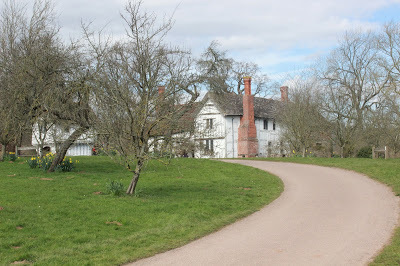 Lower Brockhampton Manor
Lower Brockhampton ManorA few weeks ago I escaped for a few days on a writing retreat/ research weekend in Herefordshire. We stayed in a beautiful barn conversion near Lyonshall, very central to some wonderful places of historic interest. Among other places we visited The Brockhampton Estate, spending a few tranquil hours at Lower Brockhampton Manor.
Lower Brockhamptom is timeless. The timber framed house and gatehouse nestles in a valley, ringed by a damson orchard and historic woodland. The house emerges as you walk up the drive and the sight halts you in your tracks and mesmerised, you reach for your camera.
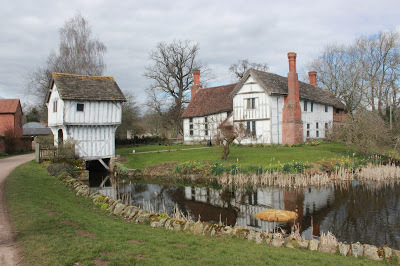
The manor was home to the same family for 900 years. The land occupied since Anglo Saxon times, the house first mentioned in the 12th century, with the current dwelling dating back to the late medieval, extended further in the Tudor period.
As an author writing in the medieval/Tudor period, places like Lower Brockhampton are invaluable. I prefer to visit out of season, when there are fewer tourists, less intrusive signage and visitor attractions to distract from the past I am trying to locate.
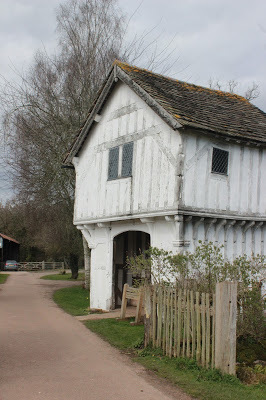
I entered the gatehouse first. It was clearly built for status, not defence and according to the guidebook, may have been a ‘visual pun’ in its mirroring of the manor behind. From the outside the gatehouse is a wonky, half-timbered delight, the diamond casements twinkling a welcome. I passed into the shadow of the gate. There have been many repairs and alterations over the years, the staircase is 17thcentury, the bargeboards on the south gable are modern copies from restoration in 1999. I run my fingers over the magnificent studded door and instinct tells me it is original. The guidebook confirms this and directs me to examine the bargeboards to the north, also original, the carving still remarkably vivid for its age.

The upper floor is uneven, the beamed ceiling aged to a glorious golden brown. On the walls you can trace the vague shadow of religious marks symbolising the Virgin Mary which, again according to the guide book, support the rumours of illegal Catholic masses held there during the Protestant years. I look around at the evidence of summer swallows and house martins, the ancient floors now trodden only by modern tourists, and wish those praying Catholics would show themselves and tell me how things really were.
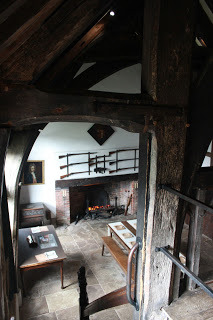
Inside the main house, the National Trust directs visitors along a trail that follows the history of the manor’s inhabitants. The great hall for instance is laid out in 17thcentury style but it is possible to see how it once worked as a medieval hall. As you move through the building, through the centuries the artefacts and the manner in which the rooms were used become more familiar. Close to the end of the trail, I came upon a lounge just like my grandmother’s house in the 1960's with a fireplace, a writing desk, a radio and a three piece suite. Being contrary by nature, I walked round in the opposite direction so I could emerge with the earlier historical period fresh in my mind.
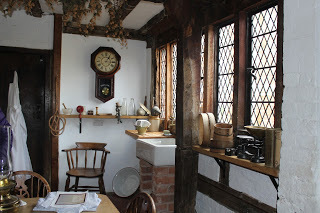 As much as I appreciate the work undertaken by the trust, and know the survival of properties like Brockhampton depend on them, I do find the stage set interiors sometimes impede rather than assist my imagination.
As much as I appreciate the work undertaken by the trust, and know the survival of properties like Brockhampton depend on them, I do find the stage set interiors sometimes impede rather than assist my imagination. It was outside that my creative juices began to flow. I strolled around the moat, examined the much plainer architecture at the back of the building, craned my neck to see the vast Tudor chimneys and was lured toward the silent peace of the ruined chapel.

In the undergrowth I heard small scurrying creatures whose way of life at Lower Brockhamptom hasn’t altered at all. Thr crows in the wood, the ducks on the moat, the moles who've dug up the meadow and the garden.
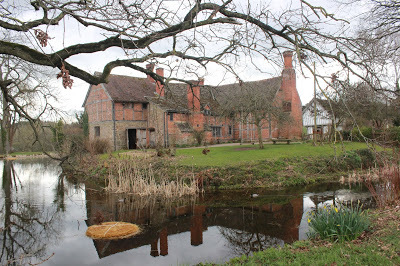
It was particularly cold, even for late March, with huge cumulonimbus clouds decorating the blue sky. Every so often, the sun burst from cover, stimulating reflections on the moat that mirrored the manor, the gatehouse, the sky – revealing another world beneath; a world very much like this one but enticing – the place I’d been seeking, the house where my characters dwell.
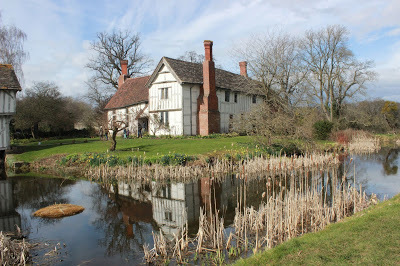
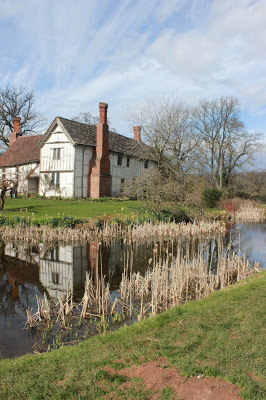
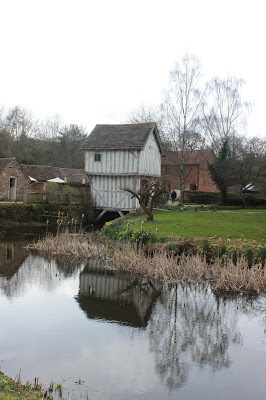
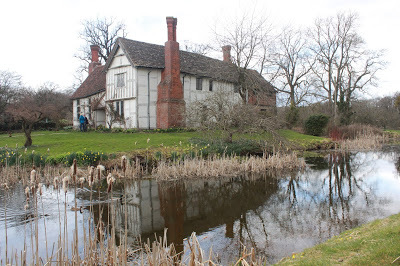
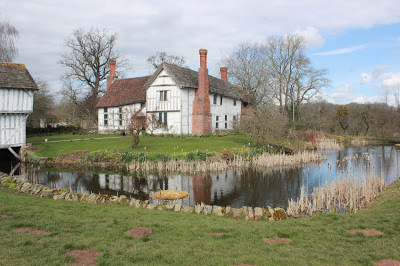
I highly recommend a visit if you are in the area, and if you are not then the journey will be worthwhile, regardless of how far you have to travel.
Judith Arnopp's novels include:The Beaufort Chronicles: Books One to ThreeA Song of SixpenceIntractable HeartThe Kiss of the ConcubineThe Winchester GooseThe Song of HeleddPeaceweaver The Forest Dwellers
Photographs copyright: Judith Arnopp
For more information please visit: www.judithmarnopp.com or author.to/juditharnoppbooksFor further information about The Brockhampton Estate visit www.nationaltrust.org.uk/brockhampton
Published on April 15, 2018 03:50
January 21, 2018
Giveaway! Sexuality and its Impact on British History
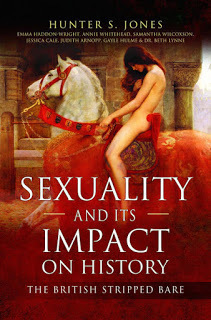 I am delighted to offer TWO copies of
Sexuality and its Impact on British History - the British Stripped Bare.
I am delighted to offer TWO copies of
Sexuality and its Impact on British History - the British Stripped Bare.
Eight authors: Annie Whitehead, Gayle Hulme, Hunter S Jones, Dr Beth Lynne, Emma Haddon-wright, Jessica Cale, Mary Ann Coleman and myself examine the impact of actual or implied sexual relationships on British history.
In my contribution to the anthology I delve deeply into the poetry of Thomas Wyatt, examine the events surrounding the arrest of Anne Boleyn and those accused alongside her, and consider Wyatt’s part in it.
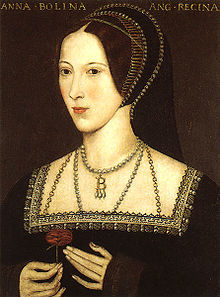
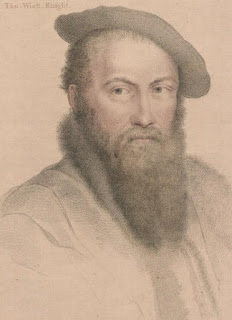
Sexuality and its Impact on History chronicles the impact of romance and sex from the time of the Anglo-Saxons, through medieval and Tudor courtly love tradition to the Victorian era. It is due for publication in March 2018 by Pen and Sword Books.
For the chance of winning a copy please leave a comment below about why you'd like to be among the lucky winners. Your copy will be sent out on publication day - 30th March 2018.
View on Amazon
Published on January 21, 2018 03:23
January 5, 2018
Sexuality and Its Impact on History: The British Stripped Bare
Sexuality and Its Impact on History: The British Stripped BareAvailable March 2018!
Pre-order now!
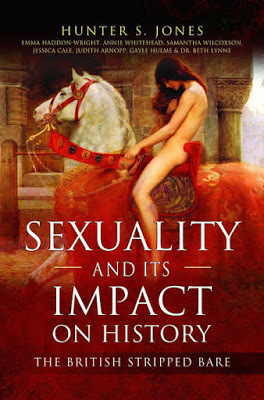
Sexuality and Its Impact on History: the British Stripped Bare chronicles the pleasures and perils of the flesh, sharing secrets from the days of the Anglo-Saxons, medieval courtly love traditions, and Tudor escapades - including those of Anne Boleyn and Mary Queen of Scots - the Regency, and down to the 'prudish' Victorian era. This scholarly yet accessible study brings to light the myriad varieties of British sexual mores. Published by Pen&Sword Books, UK.
Chapter 1Godiva: Lady, Legend, LegacyEmma Haddon-WrightChapter 2Rioting in the Harlot’s Embrace: Matrimony & Sanctimony in Anglo-Saxon EnglandAnnie WhiteheadChapter 3The Art of Courtly Love: The Ideal and Practice of Love in the Middle AgesJessica CaleChapter 4The Tudor Marriage GameMaryAnne ColemanChapter 5 These Bloody Days: The Relationship between Anne Boleyn & Thomas WyattJudith ArnoppChapter 6 The Marriages of Mary Queen of ScotsGayle HulmeChapter 7Succession, Confusion and Ramifications: Who Should Wear the Crown?Dr. Beth LynneChapter 8Lips of Flame & Heart of StoneThe Impact of Prostitution in Victorian Britain and its Global InfluenceHunter S. Jones

Sexuality and Its Impact on History: the British Stripped Bare chronicles the pleasures and perils of the flesh, sharing secrets from the days of the Anglo-Saxons, medieval courtly love traditions, and Tudor escapades - including those of Anne Boleyn and Mary Queen of Scots - the Regency, and down to the 'prudish' Victorian era. This scholarly yet accessible study brings to light the myriad varieties of British sexual mores. Published by Pen&Sword Books, UK.
Chapter 1Godiva: Lady, Legend, LegacyEmma Haddon-WrightChapter 2Rioting in the Harlot’s Embrace: Matrimony & Sanctimony in Anglo-Saxon EnglandAnnie WhiteheadChapter 3The Art of Courtly Love: The Ideal and Practice of Love in the Middle AgesJessica CaleChapter 4The Tudor Marriage GameMaryAnne ColemanChapter 5 These Bloody Days: The Relationship between Anne Boleyn & Thomas WyattJudith ArnoppChapter 6 The Marriages of Mary Queen of ScotsGayle HulmeChapter 7Succession, Confusion and Ramifications: Who Should Wear the Crown?Dr. Beth LynneChapter 8Lips of Flame & Heart of StoneThe Impact of Prostitution in Victorian Britain and its Global InfluenceHunter S. Jones
Published on January 05, 2018 03:01
January 2, 2018
Happy New Year and Things to look forward to in 2018
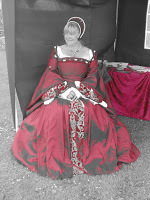 I know I am not alone is saying 2017 has not been an easy year and as I sit here on a cold bleak 2nd of January I cannot help but wonder if 2018 will be any better. But I am a great believer in optimism - I hold a strange mystic conviction that come midnight on the 31st December a magic wand wipes away the mistakes and sorrows of the old year and the new day dawns bright and shiny and unspoiled. Every January I say 'This is the year I shall lose weight, write a record breaking best-seller, find the perfect work/life balance.' Sadly, although I have many things to be thankful for, once again none of this quite came to be so I have decided to make 2018 my year instead. Happily, there are already a few things in the works that should help it along.
I know I am not alone is saying 2017 has not been an easy year and as I sit here on a cold bleak 2nd of January I cannot help but wonder if 2018 will be any better. But I am a great believer in optimism - I hold a strange mystic conviction that come midnight on the 31st December a magic wand wipes away the mistakes and sorrows of the old year and the new day dawns bright and shiny and unspoiled. Every January I say 'This is the year I shall lose weight, write a record breaking best-seller, find the perfect work/life balance.' Sadly, although I have many things to be thankful for, once again none of this quite came to be so I have decided to make 2018 my year instead. Happily, there are already a few things in the works that should help it along.
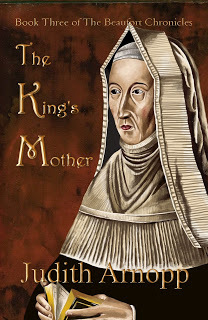
I am glad to say that the final book of The Beaufort Chronicles, The King's Mother is doing well, the reviews that have come in are good, encouraging me to begin another set much later during the reign of Henry VIII ... but more on that later. All my books are available for your kindle or in paperback. You can purchase The Beaufort Chronicles here.
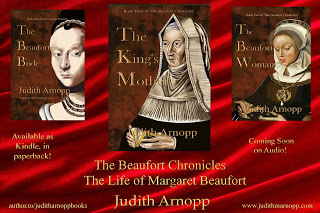
As I type this the final edits are being completed on an audio version of The Beaufort Bride, with Books two and three soon to follow. I am delighted to be working with Tessa Petersen who is doing a great job of the narration and will soon be moving on to the next books in the trilogy. Also in the pipeline is an audio production of The Kiss of the Concubine; a story of Anne Boleyn. This new enterprise will open up my work to a wider audience so if you have friends or family who prefer audio, do let them know.
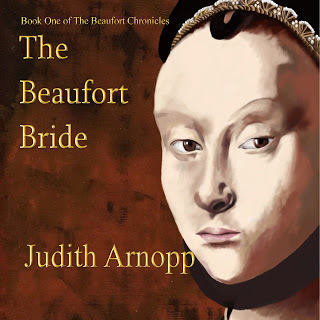
My other big news is that I shall shortly be joining fellow authors Annie Whitehead, Hunter S. Jones, Jessica Cale, Maryanne Coleman, Gayle Hulme, Emma Haddon Wright and Dr Beth Lynne in launching our anthology Sexuality and its Impact on History - a collection of scholarly essays examining the truth behind romantic and sexual relationships which have shaped British history. You can read more about it on Hunter S Jones' webpage by clicking here. The book is to be published in March by Pen&Sword Books and is available to pre-order here.

My contribution to the anthology concerns the persistant rumours of a romantic attachment between Anne Boleyn and the poet, Thomas Wyatt. I shall be examining some of his wonderful poetry that holds so many teasing possibilities.

Whoso list to hunt, I know where is an hind,
But as for me, helas, I may no more.The vain travail hath wearied me so sore,
I am of them that farthest cometh behind.
Yet may I by no means my wearied mind
Draw from the deer, but as she fleeth afore
Fainting I follow. I leave off therefore,
Sithens in a net I seek to hold the wind.
Who list her hunt, I put him out of doubt,
As well as I may spend his time in vain.
And graven with diamonds in letters plain
There is written, her fair neck round about:
Noli me tangere, for Caesar's I am,
And wild for to hold, though I seem tame.
I shall be blogging about this further during the coming months. in the meantime, have a wonderful New Year full of laughter and company and, of course, good books to read.
www.judithmarnopp.com
author.to/juditharnoppbooks
Published on January 02, 2018 02:19
September 27, 2017
My Humble Apologies and an update
 I have neglected this blog badly this year, and here we are almost at the end of September. This year has not been kind to me so far and I have struggled to keep writing, let alone blog and socialise as much as I usually do. I did manage to attend Raglan Castle for their Tudor Weekend (who would miss that) where we had a fantastic time. It was great to meet readers, both old and new to my work. We did so well that I sold out on some titles. The season of book fairs began last weekend at Narberth where my books were also very successful. It was great to catch up with my fellow authors from Wales, and meet the readers once again. It was a reward for a rotten year and I am so glad I managed to keep up with is my work in progress, The King's Mother which, you will be glad to hear, has just entered the editing stage.
I have neglected this blog badly this year, and here we are almost at the end of September. This year has not been kind to me so far and I have struggled to keep writing, let alone blog and socialise as much as I usually do. I did manage to attend Raglan Castle for their Tudor Weekend (who would miss that) where we had a fantastic time. It was great to meet readers, both old and new to my work. We did so well that I sold out on some titles. The season of book fairs began last weekend at Narberth where my books were also very successful. It was great to catch up with my fellow authors from Wales, and meet the readers once again. It was a reward for a rotten year and I am so glad I managed to keep up with is my work in progress, The King's Mother which, you will be glad to hear, has just entered the editing stage.
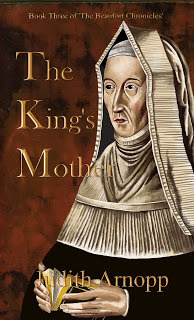
Margaret Beaufort's latter years are not as dramatic as her earlier life. Established as The King's Mother, she is gratified to finally see her son, Henry Tudor, on the throne of England, and the royal nursery filling with grandchildren. However, Henry's reign is not an easy one and there are hidden dangers: his early years as king are fraught with uprisings, imposters, and the fear of possible assassins. As the years pass and one by one their enemies are vanquished, a more personal tragedy strikes. For once, Margaret finds herself powerless as slowly and inexorably, death takes those that Margaret loves best.
It has been an uphill struggle for both Margaret and I, yet finally against all odds, the book is undergoing the first round of edits, the illustrator Kate Murray, and cover designer Cover Girl have done marvelous things with the exterior. It won't be long now until the book hits the shelves and all my fears of not making the deadline seem to have been vain.

I have also been involved in a non-fiction project with a authors, Annie Whitehead, Jessica Cale, Hunter S. Jones, Gayle Hulme, Dr Beth Lynne and Emma Hadden Wright which is to be published by Pen & Sword Books in March 2018. The book comprises of a collection of scholarly essays examining love and romance through the ages and the impact it may or may not have had on British history. I shall provide more information on this when I have it.
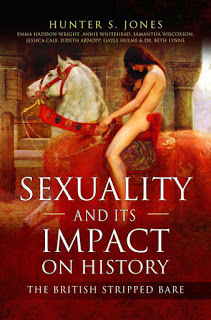
So, please forgive my neglect. I promise I shall strive to do better in the future. On my facebook page you will find an on going competition to come up wth ideas for the historical woman to be featured in my next book - preferably Tudor or late medieval. I shall peruse your ideas, and select my favourite. The person who comes up with the most inspiring idea will be mentioned in the dedication and receive a FREE copy of the book when it is published. So please, have a think and join us.
https://www.facebook.com/thetudorworld/
www.judithmarnopp.com
Published on September 27, 2017 03:56
May 8, 2017
Delighted to welcome Mary Anne Yarde to my blog today ...

When history and legend collide...
Have you ever tried to put a jigsaw together in the dark? No? Me neither. But researching The Dark Ages is a little bit like doing a jigsaw without any light. It is complicated.
The British populace finally expelled the Roman occupiers in the year AD 409. But without the might of The Roman Army, Britain found itself under attack by the Scots, Picts, Angles and the Saxons. She turned to Emperor Honorius for help. Instead of troops, Emperor Honorius sent a letter. In it, he told the people of Britain to “… look to their own defences…” Briton was alone. She would get no further help from the Empire.
What happened next was to change the course of British History forever. Britain split back into smaller kingdoms, each ruled by a powerful warlord. There was no unity, only division. How could they possibly stand up to the foreign invaders when they couldn't stop fighting each other?
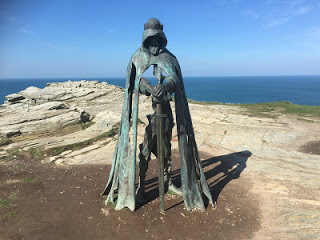
They needed someone to unite them. And that someone was none other than a man called Arthur. You may have heard of him?
It was Arthur that kept the Saxons away. It was Arthur who united the kingdoms. It was Arthur that brought about peace. Fact! Well, sort of.
The Dark Ages, as you can see, is the time of myths and legends. And the most famous tale of all was about King Arthur and his Knights. Over time, the story of Arthur was expanded upon. They gave him a castle, a court. He became a Christian King, and so it went on. Each tale more elaborate than the last, until Arthur became a superhero on par with Ironman! Of course, when he died, the Saxon’s took advantage of this power vacuum. They invaded and made Britain their home. Where was the ‘Once And Future King’ while this was going on? Perhaps someone forgot to wake him up!
Researching the life and time of King Arthur is like searching for a ghost. There is nothing substantial, just theories and stories. But you would think that there would be something more tangible about the Saxon invaders?
The Dark Ages is a little short on historical documents. The chroniclers had left with the Roman Army. So all we have to go on is the damning sermon of Gildas, and the works of Bede and Nennius. It isn’t until Alfred the Great’s time when ink was finally put to parchment. This document became known as The Anglo-Saxon Chronicles.
There is one Saxon invader that I am particularly fascinated with, and that is Cerdic of Wessex. There is a rumour that Cerdic’s troops met Arthur’s at Bardon Hill — Arthur won that day. But when Cerdic learnt of Arthur’s death he gathered his troops once more. Cerdic landed in Hampshire at the end of the fifth Century. He launched a campaign that led them across the South-East of Britain and as far as the Isle of Wight. It was during this campaign that Cerdic…
“…killed a certain British King named Natanleod and five thousand men with him.” - The Anglo-Saxon Chronicles.
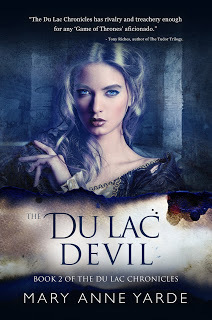 Some say that Natanleod was Arthur, while others doubt his existence at all. It is said that Cerdic became the first West-Saxon King of Britain in AD 519. Bear in mind that The Anglo-Saxon Chronicles was written over 300 years after Cedric's death. It is hardly a primary source and should be treated with, maybe not suspicion, but certainly scepticism.
Some say that Natanleod was Arthur, while others doubt his existence at all. It is said that Cerdic became the first West-Saxon King of Britain in AD 519. Bear in mind that The Anglo-Saxon Chronicles was written over 300 years after Cedric's death. It is hardly a primary source and should be treated with, maybe not suspicion, but certainly scepticism.A lot happened between the end of the Roman occupancies and the writing of The Anglo-Saxon Chronicles. It was the bards that kept the history alive during this time. Yes, they may have changed the history a little to make for a more exciting tale, but they can be forgiven because they had to make their money somehow. So you can see the problem the chroniclers had. The Dark Ages and folklore go hand in hand. It is almost impossible to separate them. They are weaved together so tightly that to try to unpick the truth from the fiction would damage the tapestry. Ruin it. So the chroniclers could only work with what they had and what they had was folklore.
In my series, The Du Lac Chronicles, I have tried to weave together folklore and history, paying equal respect to both. It is a challenge but then so is The Dark Ages and that is why I love it!
Book Blurb
War is coming to Saxon Briton.
As one kingdom after another falls to the savage might of the High King, Cerdic of Wessex, only one family dares to stand up to him — The Du Lacs.
Budic and Alden Du Lac are barely speaking to each other, and Merton is a mercenary, fighting for the highest bidder. If Wessex hears of the brothers’ discord, then all is lost.
Fate brings Merton du Lac back to the ancestral lands of his forefathers, and he finds his country on the brink of civil war. But there is worse to come, for his father’s old enemy has infiltrated the court of Benwick. Now, more than ever, the Du Lac must come together to save the kingdom and themselves.
Can old rivalries and resentments be overcome in time to stop a war?
Links for Purchase
Amazon US
Amazon UK

Author bio:
Mary Anne Yarde is the Award Winning author of the International Best Selling Series — The Du Lac Chronicles. Set a generation after the fall of King Arthur, The Du Lac Chronicles takes you on a journey through Dark Age Briton and Brittany, where you will meet new friends and terrifying foes. Based on legends and historical fact, The Du Lac Chronicles is a series not to be missed.
Useful LinksWebsiteTwitterFacebookGoodreads
Published on May 08, 2017 00:00
April 24, 2017
What Elizabeth Learned from Mary
By Samantha Wilcoxson
 Mention the name of Elizabeth I and visions of a glorious queen with red-gold hair immediately come to mind. She shepherds her people and stands firm against the Spanish armada. Her devotion to her subjects is so complete that she cannot even bring herself to find a spouse. Long after her death, Queen Elizabeth I is adored, possibly more so than she was during her lifetime.In contrast, her older sister, Queen Mary I is remembered as ‘Bloody Mary’ when she is remembered at all. The sisters shared the auburn hair that they inherited from their father, Henry VIII, but that is not all they had in common. A closer look reveals that Elizabeth learned much about ruling as queen regnant from the example of her sister.
Mention the name of Elizabeth I and visions of a glorious queen with red-gold hair immediately come to mind. She shepherds her people and stands firm against the Spanish armada. Her devotion to her subjects is so complete that she cannot even bring herself to find a spouse. Long after her death, Queen Elizabeth I is adored, possibly more so than she was during her lifetime.In contrast, her older sister, Queen Mary I is remembered as ‘Bloody Mary’ when she is remembered at all. The sisters shared the auburn hair that they inherited from their father, Henry VIII, but that is not all they had in common. A closer look reveals that Elizabeth learned much about ruling as queen regnant from the example of her sister.
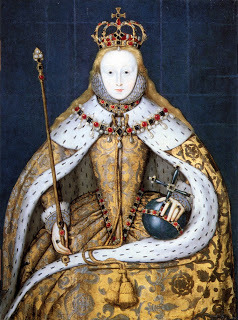 The role modelling that Mary provided for Elizabeth began long before either of them became queen. The girls were often part of the same household when Elizabeth was young, beginning with Mary’s forced servitude in the infant Elizabeth’s household as part of Henry’s striving to emphasize that it was Elizabeth who, at that time, was princess while Mary was a bastard. By the time both girls were brought to court by stepmother Katherine Parr, both were bastardized princesses.Mary’s early roles in Elizabeth’s life would have demonstrated how to be pious and submissive in the face of adversity. Elizabeth would get a different view of what positions a woman could fulfill when her father went to war in France, leaving Katherine as regent with Mary at her side. Katherine Parr was an important person in the lives of these motherless girls. She showed that a woman could order a kingdom just as well as a household, and both girls took note.
The role modelling that Mary provided for Elizabeth began long before either of them became queen. The girls were often part of the same household when Elizabeth was young, beginning with Mary’s forced servitude in the infant Elizabeth’s household as part of Henry’s striving to emphasize that it was Elizabeth who, at that time, was princess while Mary was a bastard. By the time both girls were brought to court by stepmother Katherine Parr, both were bastardized princesses.Mary’s early roles in Elizabeth’s life would have demonstrated how to be pious and submissive in the face of adversity. Elizabeth would get a different view of what positions a woman could fulfill when her father went to war in France, leaving Katherine as regent with Mary at her side. Katherine Parr was an important person in the lives of these motherless girls. She showed that a woman could order a kingdom just as well as a household, and both girls took note.
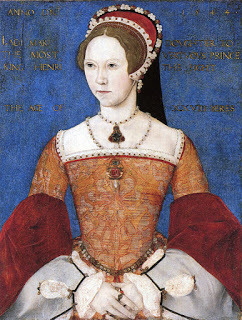 Both Katherine and Mary offered Elizabeth examples on the effects that the wrong marriage could have on a woman’s life. If she were not haunted by the fact that her mother had been executed by her father, Elizabeth need look no further than Katherine and Mary for further reasons to remain single. Thomas Seymour, Katherine’s fourth husband, gave Elizabeth an early lesson in flirtation, if not more, and was executed for treason shortly after Katherine’s death following childbirth. Mary’s marriage to Prince Philip caused an uproar of rebellion as the efforts to restore Catholicism became fused with England’s marriage to Spain in the minds of Englishmen.However, Elizabeth took note of the finer details of Mary’s reign and used them to her advantage when her turn came. While the lack of a husband caused its own problems, not the least of which was the end of her family’s dynasty, Elizabeth had learned from her father’s marital scandals and the repercussions of her sister’s choice that it was safer to remain alone. Elizabeth is famous for stating, “I have already joined myself in marriage to a husband, namely the kingdom of England.” What is not so widely remembered, is that Mary said almost the same thing.
Both Katherine and Mary offered Elizabeth examples on the effects that the wrong marriage could have on a woman’s life. If she were not haunted by the fact that her mother had been executed by her father, Elizabeth need look no further than Katherine and Mary for further reasons to remain single. Thomas Seymour, Katherine’s fourth husband, gave Elizabeth an early lesson in flirtation, if not more, and was executed for treason shortly after Katherine’s death following childbirth. Mary’s marriage to Prince Philip caused an uproar of rebellion as the efforts to restore Catholicism became fused with England’s marriage to Spain in the minds of Englishmen.However, Elizabeth took note of the finer details of Mary’s reign and used them to her advantage when her turn came. While the lack of a husband caused its own problems, not the least of which was the end of her family’s dynasty, Elizabeth had learned from her father’s marital scandals and the repercussions of her sister’s choice that it was safer to remain alone. Elizabeth is famous for stating, “I have already joined myself in marriage to a husband, namely the kingdom of England.” What is not so widely remembered, is that Mary said almost the same thing.In 1554, with Wyatt’s Rebellion underway, Mary decided to address the people of London and encourage them to rise up in her defense. She said, in part, “What I am loving subjects, ye know your Queen, to whom, at my coronation, ye promised allegiance and obedience, I was then wedded to the realm, and to the laws of the same, the spousal ring whereof I wear here on my finger, and it never has and never shall be left off. . . . I cannot tell how naturally a mother loveth her children, for I never had any, but if the subjects may be loved as a mother doth her child, then assure yourselves that I, your sovereign lady and your Queen, do earnestly love and favour you. I cannot but think you love me in return.”Elizabeth was a clever woman, better at reading political situations than Mary ever was. She was quick to use language and strategies that had worked for her sister, but also eager to put distance between herself and the memory of the aged, childless queen and learn from Mary’s mistakes.
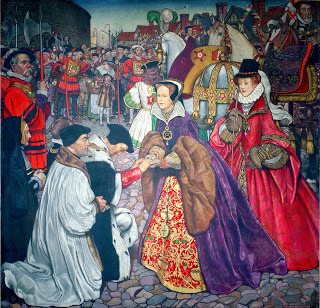
Where Mary had seen herself as the spiritual leader of her people, Elizabeth understood that changing times made Head of the Church of England a difficult title to bear. Mary had believed that it was her duty to reconcile her kingdom to Rome and her people to God, but Elizabeth was careful to keep her faith more private than any previous ruler of England had. She saw, as few monarchs of her day did, that religion was becoming an issue that people were no longer united in.Elizabeth used this difference between herself and her sister to bolster her position. In turn, Mary’s name was blackened. The harsh sobriquet ‘Bloody Mary’ was never applied to the devout queen during her lifetime, but the sister who benefitted from her example also found that she appeared more glorious if her predecessor seemed evil in comparison. Instead of receiving credit for demonstrating that a woman could reign, Mary became the enemy whom Elizabeth triumphed over. Yet, Elizabeth would not have been the success that she was without the sister who paved the way for her.Additional ReadingMary Tudor: Princess, Bastard, Queen by Anna WhitelockThe First Queen of England by Linda PorterThe Children of Henry VIII by Alison Weir
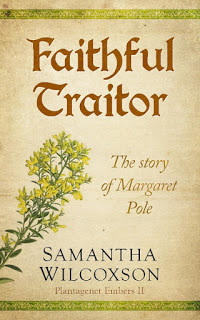
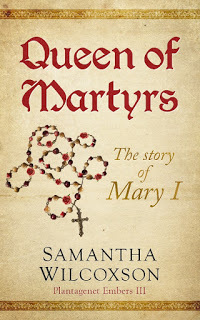
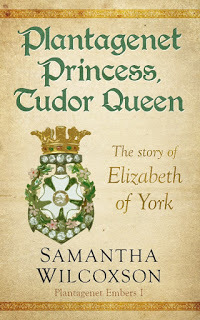
Samantha Wilcoxson is the author of the Plantagenet Embers Trilogy. An incurable bibliophile and sufferer of wanderlust, she lives in Michigan with her husband and three teenagers. Her most recent novel, Queen of Martyrs: The Story of Mary I was recently released and is available in paperback and on Kindle. You can connect with Samantha on her blog or on Facebook, Twitter, and Goodreads.
Universal Amazon Author LinkAuthor.to/SamanthaWilcoxson
Universal Book LinksPlantagenet Princess, Tudor Queen myBook.to/PPTQFaithful Traitor myBook.to/FaithfulTraitorQueen of Martyrs myBook.to/QueenOfMartyrs
Social Media LinksFacebook https://www.facebook.com/PlantagenetEmbers/Twitter https://twitter.com/carpe_librumGoodreads https://www.goodreads.com/samanthajwYoutube https://www.youtube.com/channel/UCu7FOGMdS4uHQklhT-WViEQ
Blog https://samanthawilcoxson.blogspot.com/
Published on April 24, 2017 00:30

